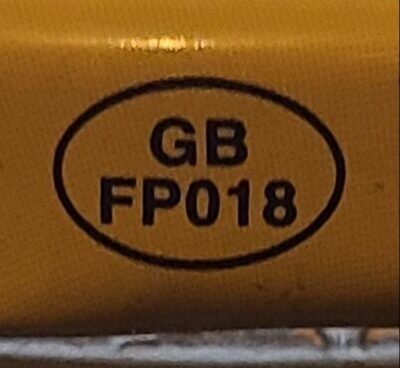
Barcode: 50824991
Pickled cockles
DOUBTFUL
📝 Reason: The product contains ingredients like cockles and potential traces of crustaceans, which are subject to differing opinions among Islamic scholars regarding their Halal status. Without explicit Halal certification, these ingredients render the product doubtful for consumption under strict Halal guidelines.
🏷️ Category: Seafood, Mollusc, Shellfish, Cockles
📄 Certificates: N, /, A
Ingredients:
Details
Understanding the Halal Status of Pickled Cockles
Pickled cockles are a popular snack choice among seafood lovers, but there’s an important question to consider: Are they Halal? The Halal status of Pickled Cockles is currently classified as DOUBTFUL due to various ingredients that may pose issues for strict Halal adherence. In this post, we will dissect the ingredients, exploring the reasons behind their Halal status, and provide you with detailed insights to help you make an informed decision regarding your consumption.
What Makes the Halal Status Doubtful?
The primary ingredient in Pickled Cockles is, of course, cockles themselves, which are classified as molluscs. According to Islamic dietary laws, the consumption of molluscs is subject to differing opinions among scholars, leading to considerable debate.
Ingredients Analysis
1. Cockles (mollusc)
Cockles are a type of shellfish categorized under molluscs. The Halal status of shellfish varies greatly among Islamic scholars, with some views asserting that all seafood is Halal, while others specifically exclude molluscs. Therefore, their status remains DOUBTFUL.
2. Water
Water is universally accepted as Halal across all schools of thought. In this product, water acts as a base for the pickling process.
3. Salt
Salt is another universally Halal ingredient that has no Islamic dietary restrictions. It’s often used for its preservative qualities in pickling.
4. Acetic Acid
Generally, acetic acid is considered Halal. This organic compound occurs naturally and is widely used in food products as a preservative and flavor enhancer.
5. Malt Vinegar from Barley (Gluten)
Malt vinegar, derived from barley, is accepted by many scholars as Halal, irrespective of its gluten content. This vinegar provides the tangy flavor that complements the pickled cockles.
6. May Contain Traces of Crustaceans
The presence of traces of crustaceans further complicates the Halal status of this product. Similar to molluscs, there are various scholarly opinions on crustaceans’ acceptability, making their inclusion in Pickled Cockles a potential concern for Halal consumers.
The Importance of Certainty in Halal Consumption
Without explicit Halal certification, the presence of ingredients such as cockles and potential crustacean traces renders Pickled Cockles a doubtful choice for those adhering to strict Halal dietary laws. Halal certification provides an assurance that the product has been vetted and deemed permissible according to Islamic guidelines.
The Context of the Brand and Category
While there is no specific brand associated with this product, it falls under the categories of Seafood, Mollusc, Shellfish, and Cockles. Consumers are increasingly looking for transparency and clarity regarding the sources of their food, particularly when it comes to Halal consumption. Engaging with brands that prioritize Halal certification ensures that consumers can trust the products they purchase.
Conclusion: Making Informed Choices
In conclusion, if you’re pondering whether to include Pickled Cockles in your diet, consider the implications of its ingredients on your Halal status. Given the doubtful classification, it might be advisable to seek alternatives that come with clear Halal certification to avoid any concerns. Always prioritize knowledge and awareness in your food choices to align with your dietary beliefs.

